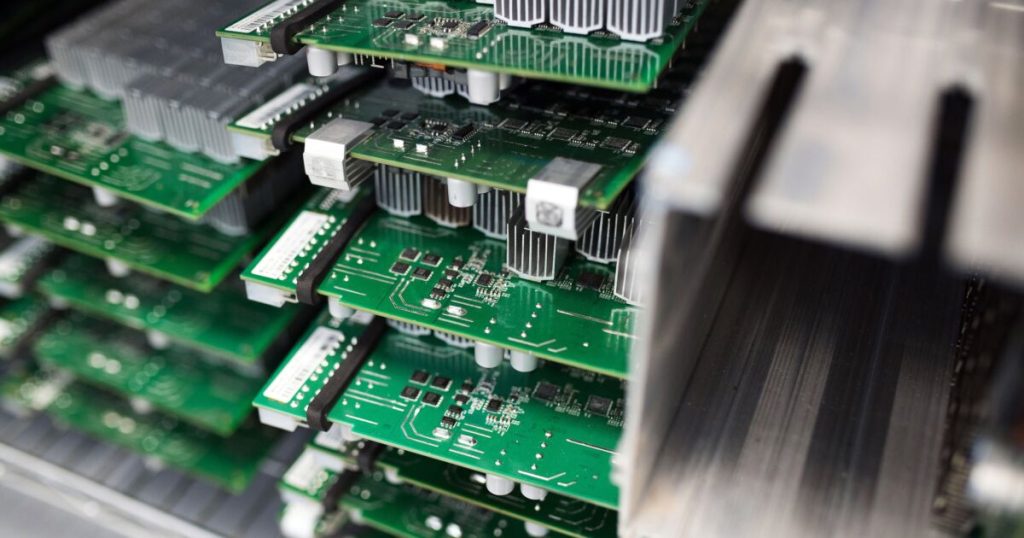James MacDonald/Bloomberg
Picture a world where millions — soon billions — of
But there’s one big problem: They don’t have a bank.
Our current
Now, imagine these AI agents operating in real time. They’ll buy access to data, rent computing power, hire other agents for help and make split-second decisions. Waiting three business days for a bank transfer won’t work. Paying a $0.30 fee on a $0.02 microtransaction doesn’t make sense. Agents will want and need instant settlement and ultralow costs. In this new economy, every delay and every fee becomes friction that eventually breaks the system.
This new form of machine-driven trade — what we might call “agentic commerce” — will lead to a massive acceleration of economic activity. These agents won’t sleep, won’t wait and won’t tolerate inefficiencies. They’ll require a global ledger that can keep up — a payment rail that is always on, decentralized, fast and cheap. This is precisely what blockchain technology was built for, not for speculative assets but for programmable, frictionless payments at scale.
So, what will these agents do? Their use cases are already emerging across three broad categories: data-for-value exchanges, personal data negotiations and agent collaboration networks.
Data is digital gold, yet its creators are not compensated for its use in training AI models. Imagine a new type of web crawler. But this time, instead of scraping content for free, it negotiates and pays other AI agents representing the data owners — publishers, platforms, creators — for access. These transactions are machine-to-machine and happen in milliseconds.
With privacy regulations like
Agents won’t act alone. A specialized travel planning agent may coordinate a complex itinerary. Still, it needs to consult other agents with deep knowledge, such as a hotel booking agent for Tahiti with real-time availability data. These agents will transact with one another, paying for services and data in a rapid-fire chain of collaboration, completing in seconds what used to take hours or days.
This is the future of commerce: autonomous, collaborative and instantaneous. But none of it works without the proper infrastructure beneath it. To support billions of transactions between AI agents, we need a new payment system that speaks the language of machines, not banks. Blockchain isn’t just a nice-to-have; it’s the missing piece that makes agentic commerce possible.
The world is accelerating. Our payment systems need to catch up.

